It was inevitable that we’d delve into Charli XCX’s Brat – an album that has undeniably become not just the album of the year, but a defining pop-culture event. What’s fascinating is how the narrative around this discussion has shifted so dramatically in such a short time, from initial weariness to a resurgence of giddy excitement, and ultimately, to a sense of profound letdown. To truly understand the phenomenon of Brat, and particularly the impact of Charli Xcx Brat Songs, we need to unpack its layers, from the music itself to the cultural whirlwind it ignited.
When you talk about Brat, you’re actually discussing two intertwined entities. First, there’s Brat the album, Charlotte Emma Aitchison’s sixth studio release, and arguably her magnum opus, a hyperpop masterpiece. Think of it as her Dark Side of the Moon or Led Zeppelin IV – an artist operating at the zenith of their creative powers, dropping a paradigm-shifting LP that redefines the landscape. Each of the Charli XCX brat songs contributes to this groundbreaking sound.
And then there’s Brat Summer, the cultural tidal wave that engulfed pop culture with its relentless barrage of radioactive-green text memes and constant allusions to the album and its core themes. These themes range from party culture, encompassing diverse genders, late-night revelry, and drug use, to more profound explorations of mental health and the complexities of navigating womanhood in today’s chaotic world. The audaciousness of its edgy aesthetic, combined with media-savvy brilliance, genuinely exceptional music, and resonant relevance for an entire generation, created a phenomenon unseen since the iconic eras of Madonna and Prince in the 80s.
Before we address the deep disappointment that abruptly curtailed Brat Summer’s trajectory, as its creator inadvertently allowed the movement to be overshadowed by political affiliations, it’s crucial to trace the exhilarating journey that led to this point. Let’s begin with some context.
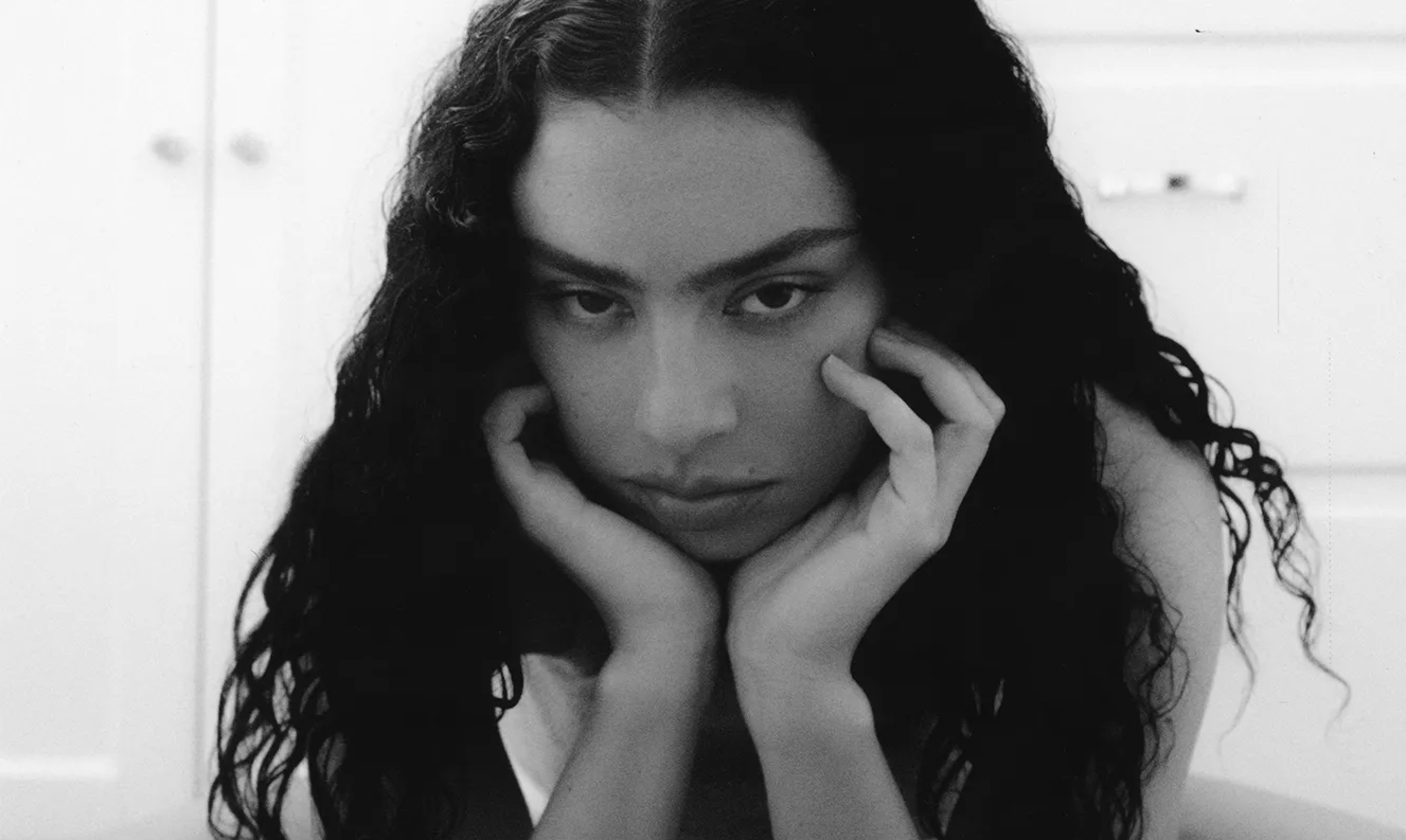
I’ve been a dedicated Charli XCX fan for approximately four years, since the release of How I’m Feeling Now. This album, crafted during the 2020 COVID lockdown in just six weeks, was a revelation. Before Brat, I considered it her best work. It was my gateway into the captivating world of hyperpop. Despite, or perhaps because of, its raw, improvised, and hurried home-recording process, it embodies the genre at its peak. It seamlessly blends shimmering pop craftsmanship, bedroom-indie experimentation, and cutting-edge electronic beats and production. It felt like a fusion of the candy-coated 80s dance-pop of my youth and the underground club and rave sounds that have been a constant in my life. Tracks like “Detonate,” which sounds like liquid drum and bass filtered through the lens of The Postal Service, or “Anthems,” with its overwhelming beats and rave synths that trigger nostalgic memories of 90s MDMA experiences, exemplify this unique blend. Exploring Charli XCX brat songs reveals a similar evolution and fusion of genres.
Discovering Charli broadened my musical horizons beyond hyperpop, ushering me into the current golden age of pop music. Realizing that a 50-year-old could embrace this genre without shame, I started exploring the discographies of other contemporary pop artists like Billie Eilish, Lorde, Halsey, Banoffee, and Caroline Polachek. I even overcame my initial reservations about Taylor Swift and gave Folklore a listen, genuinely enjoying it! This rediscovery was not only eye-opening but also a return to my musical roots. In high school and college, I was a devoted pop enthusiast, championing Madonna, Janet Jackson, and George Michael alongside Public Enemy, Soundgarden, and Ministry. I passionately argued that these pop artists were as vital and groundbreaking as punk and alternative acts. My eclectic taste was a point of pride, holding intellectual and even political significance for me.
However, as I immersed myself deeper into underground house and techno, I completely missed the pop music of the 90s and 2000s. Britney Spears, Katy Perry, and others of that era were simply not on my radar. Re-engaging with pop music in this decade has been a joyous and liberating experience. It’s fascinating to witness its evolution and how much it has changed since I last paid close attention. Reclaiming that holistic approach to music from my youth feels like rediscovering a part of myself. Embracing pop music is a potent antidote to the common syndrome of middle-aged DJs becoming grumpy and critical of new music. These “grumpsters” often miss that many contemporary artists are influenced by the electronic and rave music of our generation, blurring the lines between pop, indie, and underground sounds. Eilish’s Happier Than Ever, for example, clearly owes a debt to Portishead, and Polachek’s music exhibits overt Björk influences.
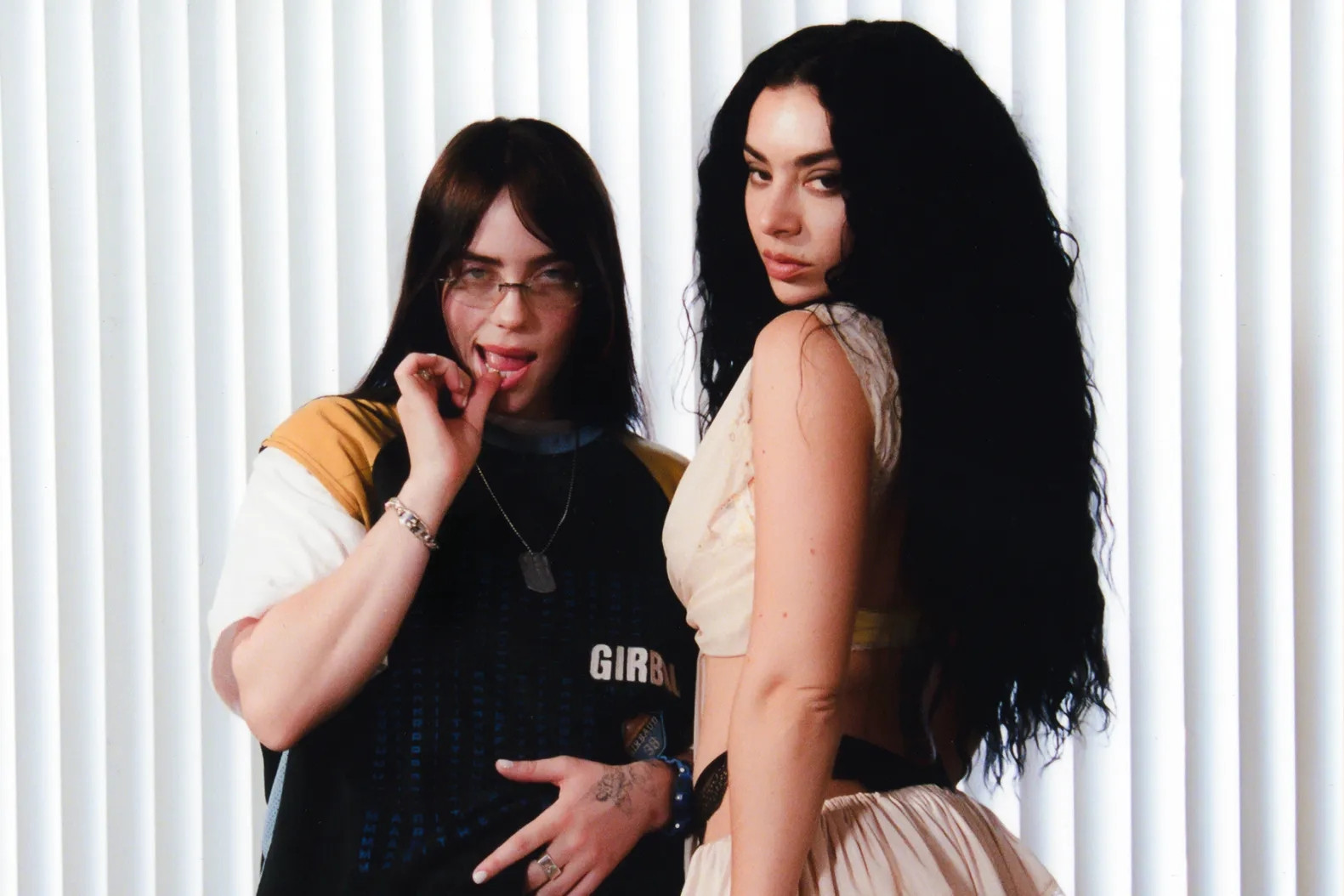
Yet, none of these artists resonate with me as profoundly as Charli. In my view, she stands head and shoulders above her contemporaries. Firstly, she is an exceptional songwriter. Her melodic sensibility is infallible; her verses possess the catchiness of choruses, and her choruses feel like designer drugs. Even a throwaway Charli XCX brat song would be a highlight in another artist’s discography. I am drawn to the vibrancy and sheer life in her music. I love her hip-hop-inspired bravado and how she subverts the pop-princess archetype with lyrics and visuals that are hilariously sleazy and drug-fueled, or sometimes darkly gothic, as seen in the provocative photoshoot for the Crash album.
While I appreciate this new wave of pop, my interest isn’t solely based on its popularity or influence. If the sound doesn’t captivate me, I’ll pass. Take Dua Lipa’s Radical Optimism, for instance, which features collaborations with Tame Impala, an artist I greatly admire. While there’s nothing inherently wrong with it—it’s quite pleasant—it lacks a certain edge. Listening to the album feels somewhat bland, overly eager to please, and akin to background music for corporate sponsorships.
In contrast, Charli’s ability to fuse mainstream appeal with experimentalism, edginess, and outright weirdness is unmatched. Like Madonna in her prime, her heart resides in the club and the underground. This, coupled with the influence of groundbreaking producers like the late SOPHIE, is key to her unique sound. Nothing compares to “Track 10” from her Pop 2 mixtape, with its evolution from hushed ambience reminiscent of Four Tet or Boards of Canada to frenetic, Autotuned pop euphoria. This track, like many Charli XCX brat songs, showcases her innovative approach to pop.
This inherent tension between mainstream and underground has always defined Charli’s career. It’s a recurring theme in her new album: I’m famous but not quite. This ambivalence about fame is something I find both relatable and endearing. It’s one reason I remain invested in Charli; celebrity culture and influencer trends, increasingly vital in pop careers, hold little appeal for me. For the most part, I tune out Charli’s social media. I acknowledge her mastery in image crafting and style, captivating legions of “Angels,” as her fans are known. While she is undeniably attractive, that aspect is secondary for me. It’s the least compelling facet of her artistry.

The endless posing, the Instagram posts of lavish dinners or Mediterranean yacht trips, the Armani partnership—it’s hard for me to see it as anything but vapid and absurd, knowing the pressures of today’s music industry. Young women, in particular, often feel pressured to engage in “influencing” as a survival tactic. However, to the extent that I do pay attention, Charli often seems to be satirizing celebrity culture. It feels like she finds it all rather ridiculous and is simply playing along. Wear these clothes as disguise just to re-enter the party—this line encapsulates that sentiment. The embrace of hyperpop, and Charli specifically, by the gay and trans communities is also significant. There’s a deliberate irony to her sleaze and sexuality, a performative quality that allows me to appreciate the music without getting caught up in celebrity fluff.
But let’s hold onto this notion of Charli’s discomfort with fame and influencer culture. We’ll revisit it when we explore the recent disappointment.

Even before Brat’s release, it was clear it would be a pivotal moment for Charli. Crash, her previous album, marked her biggest commercial success. Her headline performance at Sydney World Pride in 2023, second only to Kylie Minogue, and her inclusion on the Barbie soundtrack further elevated her profile. The album title itself, Brat, announced months before its June release, was inherently buzzworthy, encapsulating her entire persona and artistic project in a single word. In pre-release interviews, Charli expressed frustration with chasing mainstream appeal and accusations of “selling out” with Crash. She hinted that Brat would be a return to her more experimental, edgy roots, and a renewed focus on the dance floor. While I found Crash genuinely good, Charli’s inherent nature is to blend the weird and the pop, regardless of her direction. This suggested Brat would showcase Charli at her musical peak, reaching new heights of popularity while maintaining her distinctive edge. I don’t claim to be a pop music forecaster, but this time, I felt I was right on the mark.
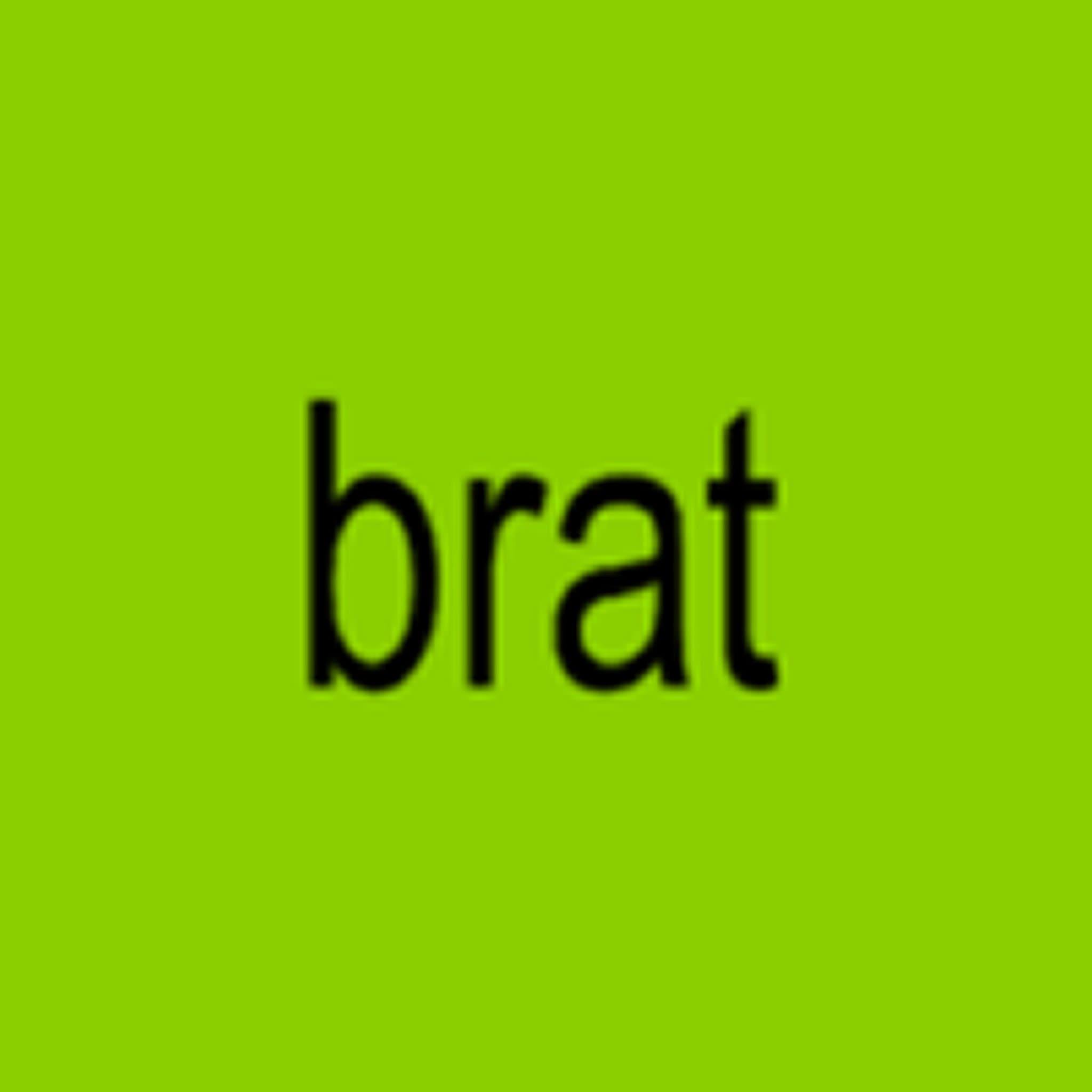
Let’s start with the album cover, designed by Brent David Freany of Special Offer Inc., based on Charli’s concept. It’s a stroke of genius, a truly iconic sleeve design. Just four black letters on a green background, yet everything—the custom Arial-based font, the blurry distortion, the lurid green, the anti-design aesthetic—is perfect. It evokes text messages on Nokia phones, lo-res memes, MySpace icons, club lighting, fluoro rave gear, energy drink cans, and condom packets. It perfectly complements the nostalgic nod to circa-2007 “indie sleaze,” electroclash, and EDM that defines the album’s sound. Even more impactful is the cover’s meme-ability. Anyone can replicate the font and distortion with basic phone photo-editing software. This was clearly intentional—inviting audience participation, expanding the project in an open-source, MySpace-era spirit. Official merchandise becomes almost irrelevant; the more glitched and DIY the memes and t-shirts, the more authentically Brat they feel.
@ok_claraI’m a brat when I’m bumping that
While the memes often reference partying and girlhood, the beauty of Brat is its universality. Anyone or anything can be “Brat”—or almost anyone. The sillier or more random the connection, the better, as long as it embodies self-acceptance and defiance, especially for those marginalized by society. This inclusive spirit is captured in many Charli XCX brat songs.

Three days post-Brat release, Charli dropped Brat and It’s the Same But There’s Three More Songs So It’s Not, a bonus LP featuring a white-background variation of the cover. Incredibly, it too became a meme. When has a bonus LP cover ever achieved meme status?
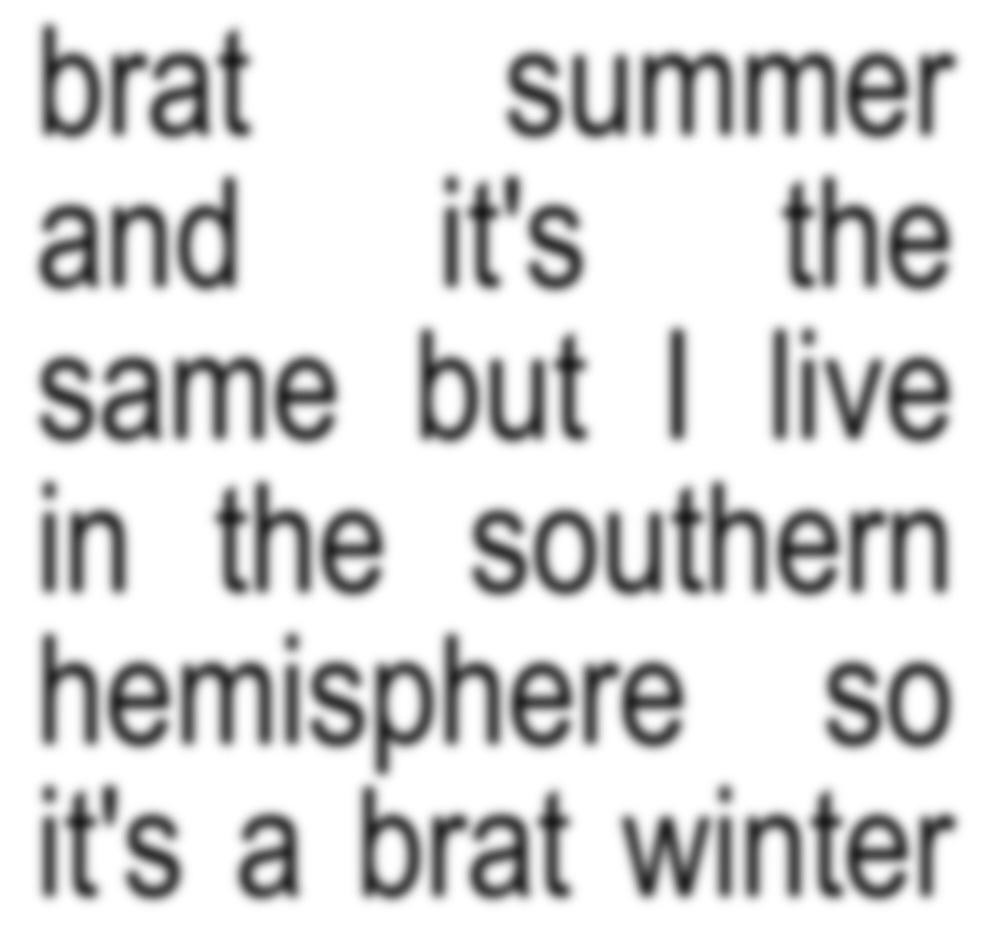
Whether music promotion should resemble viral marketing is debatable, but the Brat meme’s massive, organic spread couldn’t be entirely boardroom-planned. However, again, let’s park that thought, because the Brat Summer betrayal partly lies in how it undermined this wonderful grassroots energy.
[
View this post on Instagram](https://www.instagram.com/p/C9f2xAxvi-N/?utm_source=ig_embed&utm_campaign=loading)[A post shared by Charli (@charli_xcx)](https://www.instagram.com/p/C9f2xAxvi-N/?utm_source=ig_embed&utm_campaign=loading)
Despite Brat Summer’s downturn and the perceived “uncoolness” of recent events, the album itself remains incredible. Upon first listen, Brat hits hard. The intensity and innovation compared to Crash are immediately apparent. “360” grabs you instantly with an infectious synthline, setting the stage for many more throughout the album. Charli’s singsongy vocals glide over a killer bassline and electro beat. The track’s exhilarating momentum, Charli’s syncopated phrasing on I’m everywhere, I’m so Julia, and the melodic swagger of lyrics like When you’re in the party b-b-bumpin’ that beat / 666 with a princess streak are all perfectly calibrated. These elements are hallmarks of compelling Charli XCX brat songs.

Brat is so consistently excellent, it feels like a greatest hits collection. In a way, it is, as Charli’s songwriting has never been sharper. The fact that nearly every track has spawned memes—each track an organic hit—testifies to this quality. The album’s relentless barrage of hits like “Sympathy Is a Knife,” “Talk Talk,” and “Von Dutch,” and its sustained peak in the latter half with tracks like “Girl, So Confusing,” “Apple,” and “B2B” is remarkable. “Apple,” on my first full listen, genuinely made me laugh with delight—the melody, the bassline!—evoking the exhilaration of a great DJ set with continuous high points. Exploring Charli XCX brat songs reveals this consistent quality and hit-making ability.
Charli’s music frequently references past eras. I’ve mentioned the rave undertones and Crash’s nods to 80s dance-pop and 90s house. Brat amplifies this, explicitly referencing 2000s club and indie music, which in turn echoed 80s new wave and post-punk. The result is an album that mashes up four decades of music history—80s through rave, indie, hyperpop—a blur of melody and fierce beats. It’s as if Charli, like Neo in The Matrix, realizes she’s “The One,” and everything flows effortlessly.

These layers of influence are evident in “Girl, So Confusing,” which sounds like Madonna produced by LCD Soundsystem; “Mean Girls,” with its gospel-house piano over an electroclash groove; and the techno-goth “Sympathy Is a Knife,” reminiscent of New Order’s Latin freestyle-inspired tracks. It’s fascinating that a 32-year-old artist is mining nostalgia for the music, art, design, and tech of her youth (Charli turned 15 in 2007) and resonating strongly with Gen Z. Today’s youth are captivated by the signifiers of earlier eras, and Charli’s genius lies in fusing nostalgia with contemporary sounds, making it feel current. This isn’t new; 80s pop often referenced the 60s. The best artists, like Prince, made those references feel fresh and exciting.
Despite Brat’s numerous producers and co-writers, including A. G. Cook, Hudson Mohawke, and Gesaffelstein, and its stylistic range, it maintains cohesion and flow. This is Charli’s vision. While producers deserve credit, there’s a tendency to overemphasize male producers’ roles in female pop artists’ work. Brat clearly demonstrates Charli’s authorship, with producers helping realize her vision. Like Madonna at her best, Charli’s genius lies in selecting excellent collaborators and maximizing their contributions. The pitch-bending synth on “Von Dutch,” reminiscent of 90s rave sounds, is a prime example. It perfectly complements Charli’s assertive, bitchy lyrics (It’s okay to admit that you’re jealous of me). The pitch shift when she sings I know your little secret, put your hands up! brilliantly amplifies the double meaning—confession and celebration. This is simply masterful songwriting, a hallmark of Charli XCX brat songs.
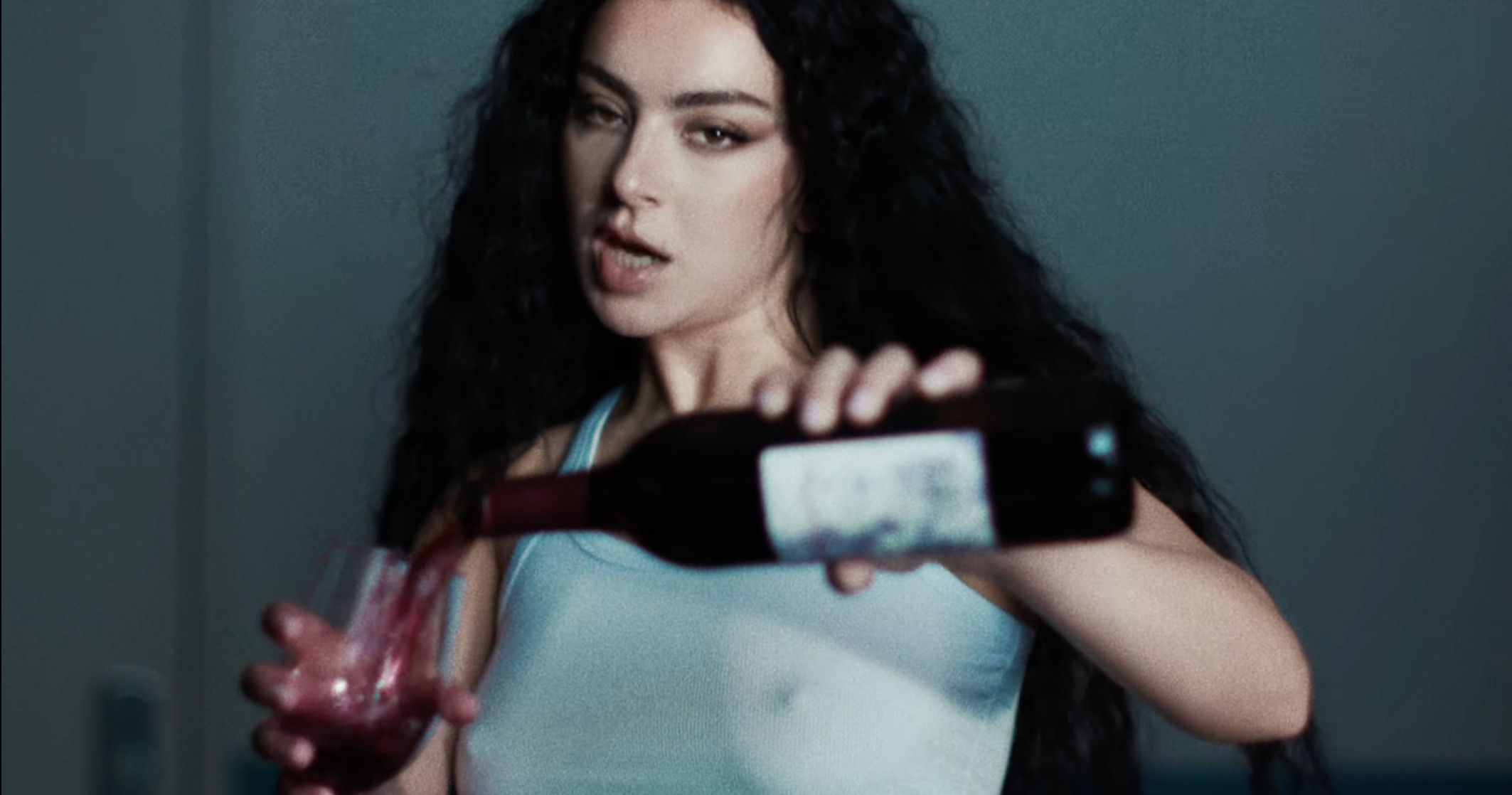
Brat is full of such details. Charli and her team excel in depth and texture, like the orchestration on “Everything Is Romantic,” recalling André 3000’s The Love Below. But they also deliver direct hits. A track called “Rewind” naturally demands a spinback, perfectly executed to enhance the 90s breakbeat-hardcore vibe. Like The Love Below, Brat achieves commercial success with Charli’s most personal and experimental album—and also her weirdest. The lyrics oscillate between vanity, cattiness, self-doubt, and alienation. She delves into dark themes, notably in “Sympathy Is a Knife” with the jarring lines Why I wanna buy a gun? Why I wanna shoot myself?, juxtaposed with hedonism and girl power.
Someone aptly captured these mood swings in a reel:
[
View this post on Instagram](https://www.instagram.com/reel/C8FgcBcP2_9/?utm_source=ig_embed&utm_campaign=loading)[A post shared by zay dante (@zaydante)](https://www.instagram.com/reel/C8FgcBcP2_9/?utm_source=ig_embed&utm_campaign=loading)
Beyond manic depression, there are expansive moods. In “Everything Is Romantic,” Charli delivers rapid-fire spoken-word impressions of an Italian epiphany, showcasing her lyrical prowess (she’s a skilled rapper):
Bad tattoos on leather-tanned skin
Jesus Christ on a plastic sign
Fall in love again and again
Winding roads doing manual drive
“I Think About It All the Time” reveals her stream-of-consciousness anxieties about aging and motherhood over a jittery indie-dance beat:
So, we had a conversation on the way home
Should I stop my birth control?’
Cause my career feels so small in the existential scheme of it all
This track unexpectedly becomes the album’s emotional core. Her vocal delivery is tender, vulnerable, and wavering.
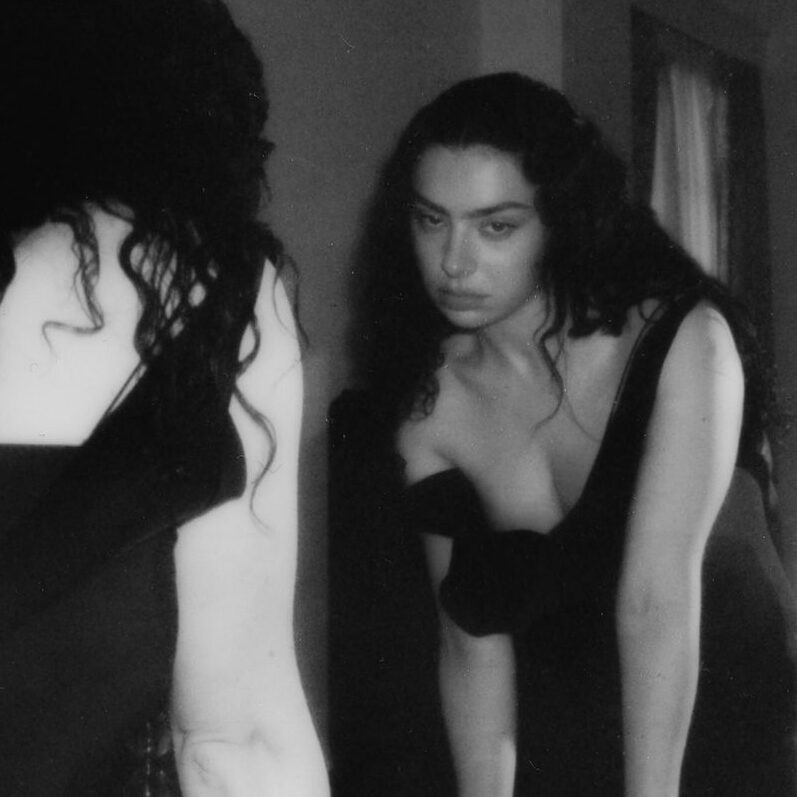
Despite her image-centric persona and frequent Autotune use, Charli’s vocal talent is often underrated. Closer listening reveals her powerful voice and control, whether singing, rapping, or using sprechgesang. The Autotuned elements are also creatively used, transforming her voice into another synth layer. Perhaps these contradictions—pop star versus uncertain woman, I’m your favorite reference versus I’m perfect for the background—aren’t contradictions at all. Maybe Brat‘s massive appeal stems from these confessions of anxiety beneath performative girl power, addressing pressures of beauty, success, motherhood, and escapism, resonating with millions beyond pop stars and influencers, especially in today’s “permacrisis.” The most meme-able lyric, It’s so confusing sometimes to be a girl, speaks to this widespread feeling. These themes are central to the impact of Charli XCX brat songs.
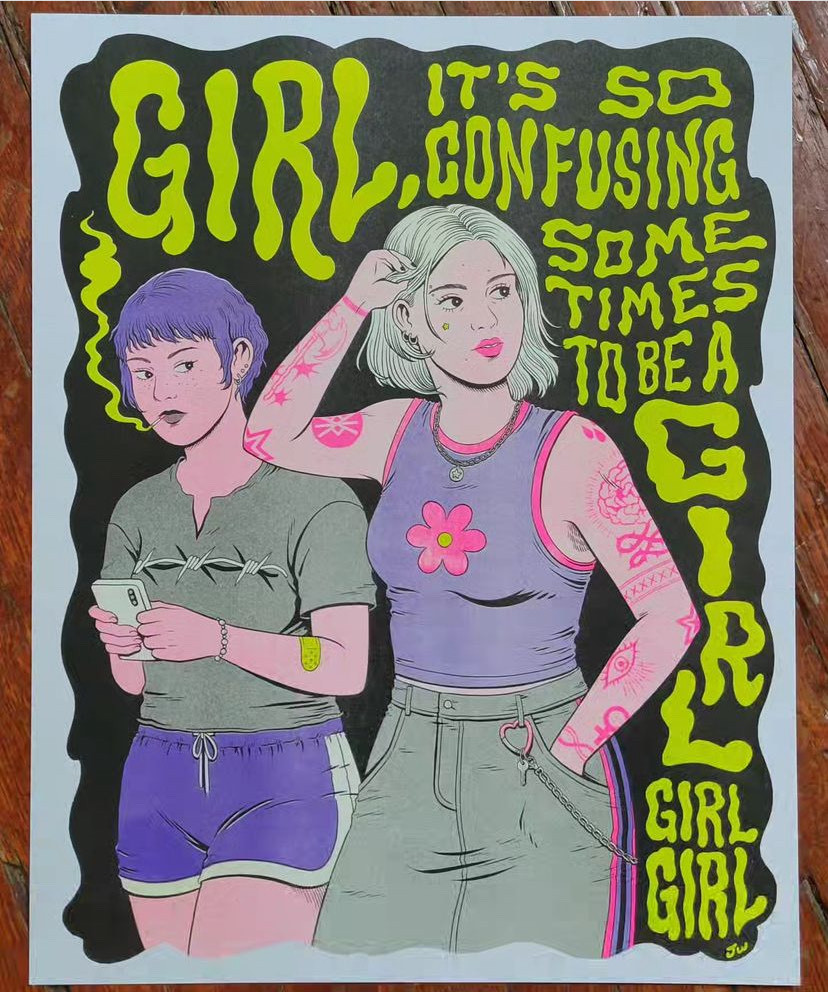
What’s most compelling about Brat is its revitalization of the album format. It proves the album’s continued relevance for younger generations and within contemporary media through memes and TikTok trends.
Like what you’re reading and want to support? Consider buying me a coffee!
Weeks after the album’s release, Brat Summer shifted into overdrive. Green and white memes were ubiquitous, along with the “Apple” dance and lyrical references. Initially delightful, it became overwhelming, like overdosing on an electric-green apple concoction. This was a novel experience; previously, I had to introduce people to Charli, feeling like an insider. Now, her era as an avant-pop queen, an outsider’s icon, seemed over. She had become a mainstream pop star. Despite resisting it, a part of me, typical of music fans of my generation, became wary, even sullen, about her success—Dude, I liked her early stuff. Consequently, when I shared my mid-2024 best albums list, Brat ranked fourth, behind Kim Gordon, Beth Gibbons, and Waxahatchee. In my heart, Brat felt like the year’s most significant album, but I felt oversaturated (though the other three are fantastic).
Soon after, several events reignited my passion for Charli and Brat.
@kyle_maclachlanthe girl, so confusing remix and it’s the same but i made a music video to it so it’s not
First, Kyle MacLachlan’s viral embrace of Brat. His adorable video bopping to the “Girl So Confusing” remix and his enthusiastic interviews about the album were incredibly validating. His insightful comments, recognizing SOPHIE’s influence and relating to “I might say something stupid,” resonated deeply. Agent Dale Cooper’s passion for Brat, acknowledging SOPHIE at 65, made me feel less alone as a middle-aged dad among Charli fans.

Sharing a photo of Charli with MacLachlan on my Instagram story, a comrade joked about convincing her to be a Leninist. Though jesting, it sparked an idea: Charli is with us! Despite no communist leanings, and the absurdity of projecting, it resonated in the moment. This connection was strengthened by a Charli interview describing Brat Summer as “a pack of cigs, a Bic lighter and a strappy white top with no bra.” She means the working class, I thought. She used “trashy,” but the essence was working class.

Specifically, working-class girls and LGBTQ+ individuals. Another interview clip showed Charli discussing fan interactions: “When my fans and I meet, they always get me to hold poppers and go ‘Gay rights!’ or like sign their poppers bottles.” This empathy for the young, precarious working class, their emotional spectrum, their party culture as solace in a crumbling world—suddenly, it clicked. This is Charli’s current relevance. Her Charli XCX brat songs capture this zeitgeist.
A Guardian commentary, discussing “recession pop,” touched on this but missed the core point. Reducing the current mood to “recession” overlooks the deeper despair and apocalyptic anxieties among younger generations as the world burns. Shortly after this epiphany, Donald Trump was (unsuccessfully) shot. Seeing a Brat meme applied to this news hours later was both shocking and darkly humorous. The instant applicability of Brat Summer reinforced its genius. I questioned my earlier hesitation. Number four ranking? Unacceptable! That weekend, Brat blasted on my home hi-fi. Dancing alone, I rediscovered my love for it. My mind raced, and an early version of this essay took shape—lede, outline, conclusion, complete. But this enthusiasm was short-lived.
The next morning, Kamala Harris replaced Joe Biden as the Democratic nominee. The day after, Charli XCX tweeted “kamala IS brat.” My immediate thought: Brat Summer is over. Sharing this deflated sentiment, I wondered if others felt the same—that Charli endorsing a candidate overseeing genocide was catastrophic for the album and movement. While Democratic popularity among youth is waning due to Gaza, many still see presidential candidates as change agents, especially against Trump. But many did feel the same. A post echoing my sentiment went viral. I underestimated the youth.
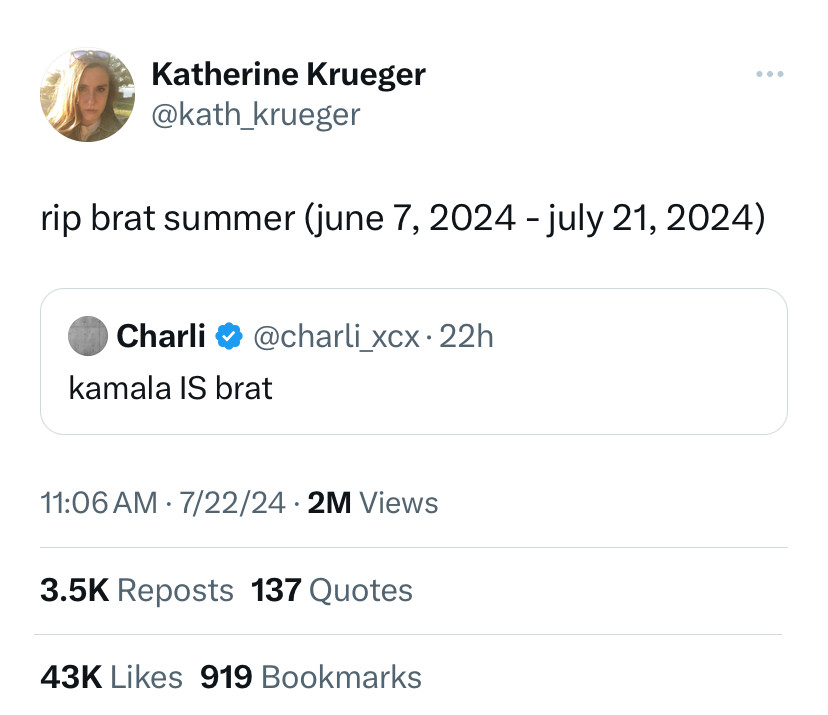
Even more potent was a meme explicitly calling out the genocide using the Brat cover. Though deleted (the author faced transphobic abuse), it garnered 160,000 likes, significant compared to Charli’s original post’s 260,000. It’s unlikely Charli was unaware of this backlash.
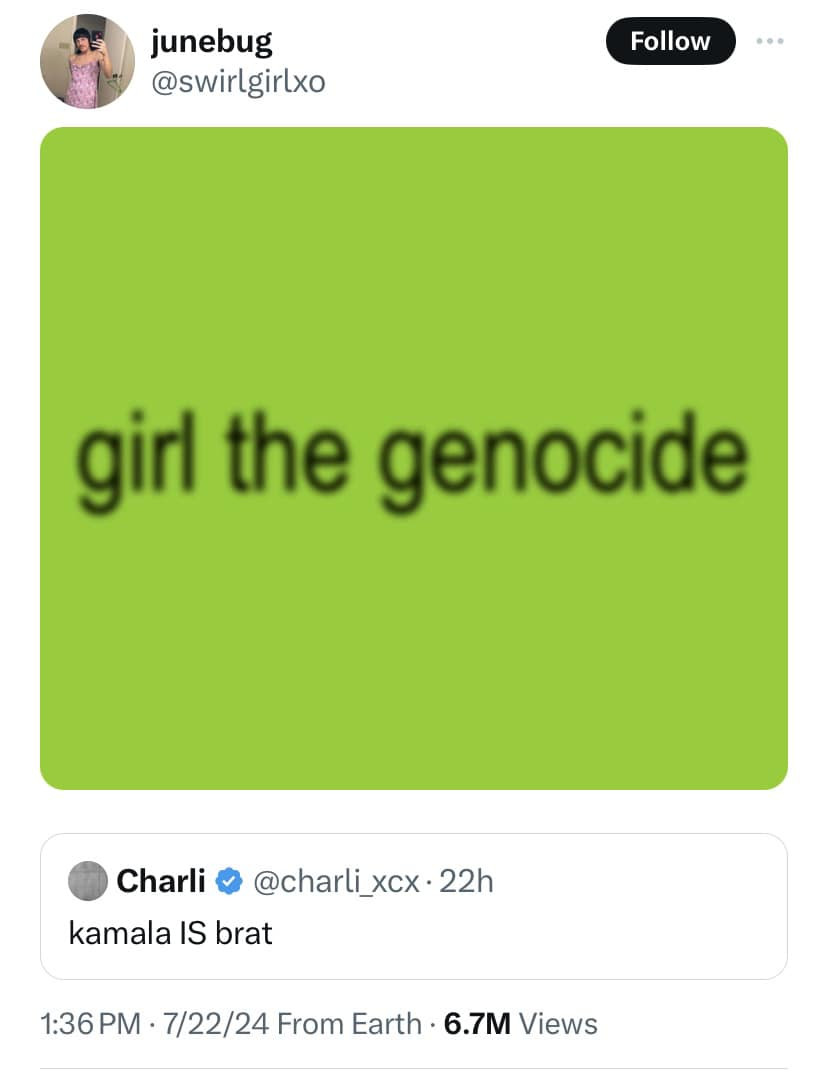
“Brat Summer is dead” quickly became mainstream. Even Pitchfork acknowledged it, headlining “Brat Summer Is Dead, Long Live Brat Summer.” The article, while omitting genocide, hinted at the Democrats being the antithesis of Brat. While less culturally inept than Republicans, Democrats remain “corny and square,” the party of Wall Street and the military-industrial complex, of awkward Lin-Manual Miranda routines for NPR dads. Charli aligning with them to rehabilitate this image, tarnishing her own, is disheartening. Kamala is not Brat. She’s a 59-year-old politician complicit in empire, a former DA who criminalized parents of truant children and denied gender-affirming care to a trans inmate. Before Gaza, the latter alone is problematic given Charli’s trans fanbase.
The possibility of pre-arrangement—Harris’s PR team approaching Charli pre-nomination—is plausible. Kamala HQ’s swift Twitter avi change to a Brat meme and the subsequent “Kamala is brat” internet inundation suggest a coordinated effort. Savvy marketing, yes, but solely beneficial for Democrats, detrimental to Charli and her fans, and offensive considering the ongoing violence in Gaza.

Why is supporting Harris/Democrats terrible? The Gaza genocide, ongoing for ten months, has unwavering Biden administration support. Despite nearly 80% of Democrats and over half of Republicans wanting a ceasefire, the administration not only ignores calls but undermines international justice efforts. Pro-Palestine protesters are portrayed as violent and antisemitic, and the administration hasn’t apologized for false claims about beheaded babies—ideological cover for a genocide where thousands of real babies have died. While US troops aren’t directly attacking Gaza, it’s an American genocide, enabled by US dollars and bombs. Biden bypassed Congress to expedite weapons shipments, impacting the climate. The death toll, officially 40,000, is likely closer to 186,000, with starvation and disease rampant due to destroyed infrastructure and water supply. Israel’s blockade, supported by the US, prevents aid. Biden could end US support with a phone call. “Grave concerns” and “pauses” are spin; more bombs continue to be shipped.
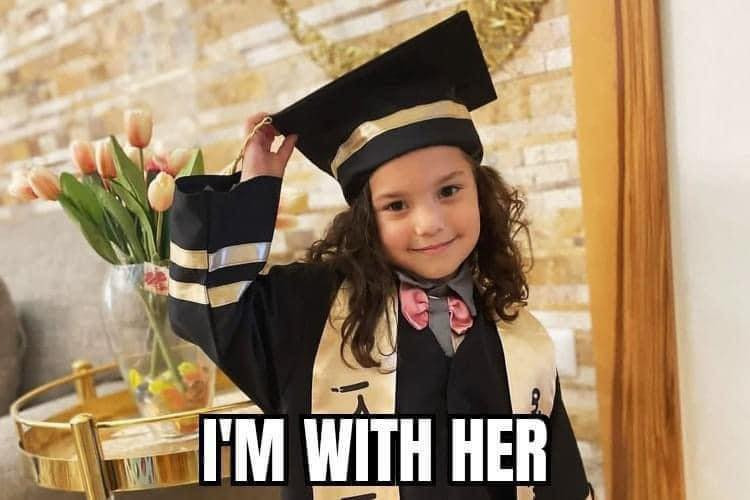
As VP, Kamala Harris is complicit. She’s been in war rooms during these decisions, affirmed Israel’s “right to defend itself” after mass civilian deaths, attacked pro-Palestine protesters, and repeated the “right to defend itself” refrain after IDF bombings in Beirut. Meeting Netanyahu and shaking his hand legitimizes a war criminal. Her office confirmed no support for an arms embargo. When protesters chanted Kamala, Kamala, you can’t hide! We won’t vote for genocide!, she retorted, “If you want Donald Trump to win, then say that.” Palestinian poet Refaat Alareer, before his murder, tweeted Harris’s “right to defend itself” statement, adding, “The Democratic Party and Biden are responsible for the Gaza genocide perpetrated by Israel.” Blaming only Biden lets Harris and other complicit figures off the hook.

Progressives supporting Harris either fantasize about a future ceasefire or ignore the genocide, hoping it fades. The campaign relies on personalities, marketing, and memes because substance is lacking. No policy depth, no arms embargo discussion, just vague progressive rhetoric and memes. No ceasefire, just vibes. It’s infuriating that Charli “popwashes” genocide. Juxtaposing Brat Summer with Gaza highlights the inanity and ugliness of “kamala IS brat.”
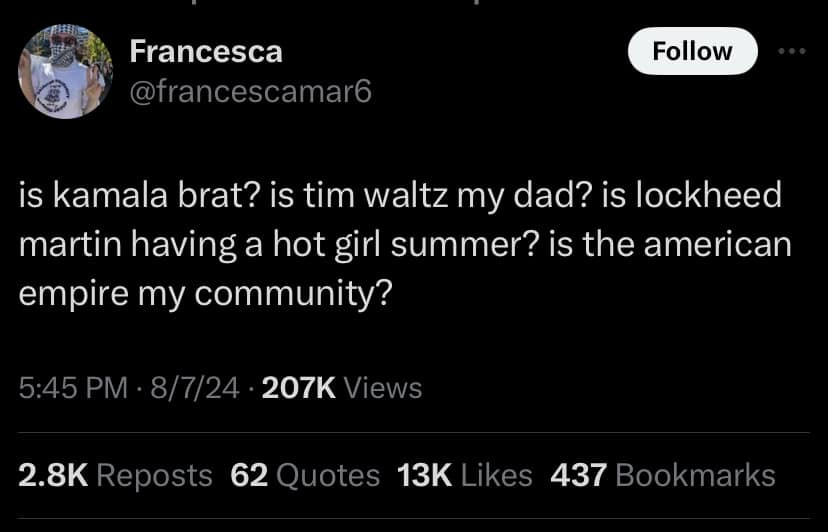
This confirms private misgivings about Charli—influencer culture, self-absorption, lyrical lack of social content. How I’m Feeling Now, while beloved, feels tone-deaf with I’m so bored! during the pandemic, referencing mansion isolation while global events unfolded. Previously, I rationalized this as Charli’s artistic focus—personal experiences relatable to many, especially young women. And I reject the vulgar-left view of mass entertainment as brainwashing.
[
View this post on Instagram](https://www.instagram.com/reel/C6Lt8DNt4IB/?utm_source=ig_embed&utm_campaign=loading)[A post shared by @celebrities4palestine](https://www.instagram.com/reel/C6Lt8DNt4IB/?utm_source=ig_embed&utm_campaign=loading)
Celebrity expectations are complex. Silence on genocide might stem from career fears. However, figures like SZA, Mark Ruffalo, and Dua Lipa (deserving credit) speak out. If I had their platform, I would too. But obsessing over celebrity silence is another facet of celebrity fixation. Notably, women celebrities often face disproportionate scrutiny. Taylor Swift is a prime example, facing intense criticism, though billionaires running the world escape similar focus. The “block celebrities” campaign for Gaza silence seemed moralistic, less constructive than genuine activism. Some, like Lizzo and Charli, responded with tepid peace statements or Gaza relief links.
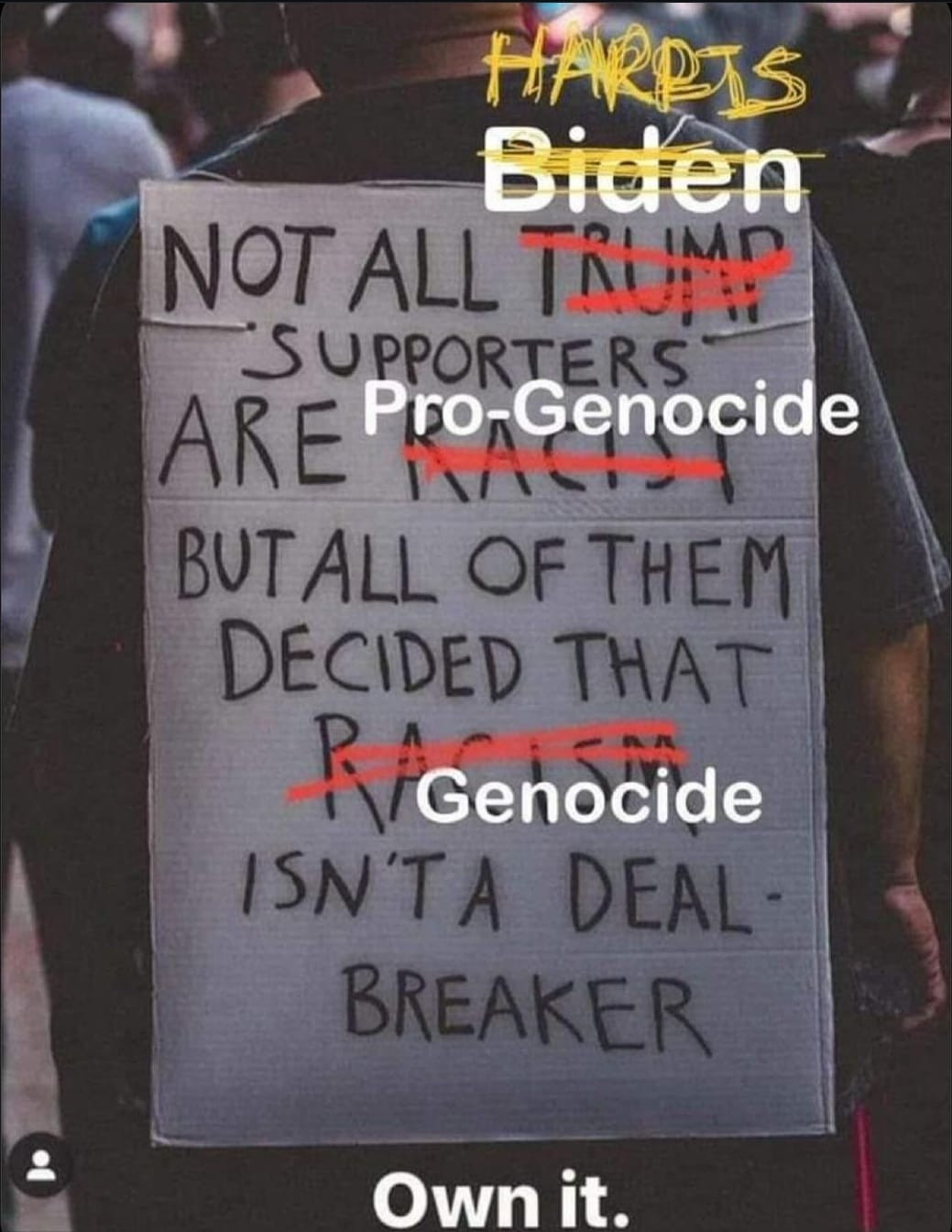
But Charli’s Harris endorsement shows she has political views and can speak up—just not for Palestine. Perhaps she aims to prevent a Trump presidency, even if supporting a genocide-complicit imperialist. Or, she’s leveraging fame for political proximity, career-motivated self-absorption. Neither reflects well given Gaza and fan pleas for her voice. It’s angering—at Charli and at pop culture confirming vulgar-left critiques.

Growing anger and frustration are widespread, beyond Gaza. Gen Z is more radicalized due to inflation, climate crisis, police violence, LGBTQ+ attacks, and public health failures. Gaza amplifies this, a tipping point for a generation raised in COVID lockdown, facing a bleak future. A threshold is crossed; Gaza changes us all. Public figures will face increasing scrutiny for silence or complicity. Jack Black’s swift disavowal of Kyle Gass after a Trump shooting joke illustrates this. Black, fearing career repercussions, became the villain, his “weaselly, pearl-clutching Hollywood centrist” image potentially lasting. His damage control “reunion” with Gass felt transparent. This shift in public accountability might have been unthinkable for a star like Black a decade ago. Charli’s Harris endorsement echoed this—viral pushback, Gaza comments on every post, “Brat Summer is dead” becoming the narrative. Charli isn’t “over,” and Brat remains compelling. But Brat Summer’s grim demise signals a changed landscape.
Like what you read and want to support? Consider buying me a coffee! You can also subscribe below, and be sure to share this article!
Feature image photo credit: @leagarn with edits by me
Share this:
Like Loading…
